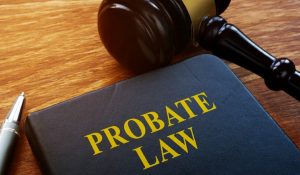Table of Contents
Heirs’ property is an estate without the formal processes to show change of ownership over a long time. In other words, the phrase describes a situation where spouses, children, and relatives assume the property of a decedent without conducting probate, and the pattern continues down generations.
While cases of heirs owning the property after the owner’s death are prevalent, they still fall short of having the proper documentation to show who owns what. In this case, it may be challenging to use the property as collateral for financing, sell it, or receive any benefits.
Heirs’ property situation also exposes the heirs to the risk of losing the property if a partition action arises or as a punishment for failing to pay taxes.
This guide explores the challenges associated with property passed down through generations without the necessary formalities. It also provides crucial steps that you can take to obtain a clear and marketable title.
Key Takeaways
- Failure to commence or finalize the probate process means that the property records will remain outdated regarding ownership, leading to many issues.
- One of the crucial steps to resolve problems associated with heirs’ property is seeking the help of an estate attorney and a researcher to trace all the property records, establish all legal heirs, and pursue a clean title for the property.
- If you’re one of the beneficiaries of the heirs’ property, consider consulting experts at Record Click to help resolve any issues as soon as possible.
Legal Issues Associated with Heirs’ Property

Estate settlement should be done legally and ethically
Most Communities still hold heirs’ property due to lack access to legal counsel and favorable laws that honor traditional land transfer methods.
The only solution for many people is the special provisions for heirs’ property in partition laws across states. The special provisions protect every member’s ownership or shares if some family members want to sell the property.
When no probate process occurs after the property owner’s death, there is no legal basis to determine the next course. Land records remain outdated on the heirs and current property ownership.
This massive gap in the legal process could go on for several generations, leading to a situation where the records show the rightful owner to be a person who died a century or decades ago. By this time, the number of informal heirs of the property could be hundreds of people, many of whom may not realize they have an interest in the property.
What Does a Typical Probate Process Entail?
In most cases, the probate process commences after the demise of the property owner. The probate court oversees the transfer of the real property, whether there was a valid Will or not. Finally, the estate executor or administrator files a deed in the property records office, which indicates formal documentation of the transfer of property and title to new owners, who may include heirs and beneficiaries.
You can find the records at the property/land records office, which is at the “Clerk of Deeds” or “Recorder’s Office.”
What Happens After Skipping Probate?

the longer the riskier
Failure to commence or finalize the probate process means that the property records will remain outdated regarding ownership, leading to many issues. First, all the legal heirs and beneficiaries may not enjoy their rights as they lack a legal standing. Second, the heirs will fail to obtain financing from banks or lenders as they may not leverage the property as collateral.
Failure to finalize an estate can also lead to financial obligations in the future, as the new owners may not receive updates regarding assessment notices, property tax statements, and other legal notices. The lack of such notices increases the likelihood of land loss due to default in taxes and other assessments.
The probate process also plays a crucial role in sorting out any credits or debts associated with the property before distribution. So, ignoring the process means that the heirs may not receive a clean slate, and the creditors may take advantage of the confusion to make more claims.
While the regulations vary with states, creditors have less than 10 years to file a lawsuit. However, executors’ swift action may significantly shorten this time as the creditors are soon notified about the debtor’s demise and the opening of probate. With the time shortened, it becomes more likely for heirs to acquire a clean property title.
What if The Owner Didn’t Write a Will?

Grant of Probate When There’s A Will
In cases where the decedent died without a Will (intestate), the state laws come into play to help decide the rightful heirs and beneficiaries. The probate court is often handy as it is the medium through which an estate administrator is established and heirs searched.
The property is then divided among all the heirs depending on the family’s composition and size. However, it would be a hassle to establish heirs without the probate court guidance. No other formal determination of heirs exists under the applicable intestacy distributive scheme.
The probate process makes inheritance formal and shortens the time the legal heirs must make their claims. The clarity and legality in the probate process leave the credits and other assets addressed, providing the heirs with a clean title. However, ignoring the process makes it more likely for additional issues to cloud the property.
How To Resolve Problems Associated with Heirs’ Property
One of the crucial steps to resolve problems associated with heirs’ property is seeking the help of an estate attorney and a researcher to trace all the property records, establish all legal heirs, and pursue a clean title for the property.
You need professional help to ensure everything runs smoothly and smoothly along the way. \
Below are some typical strategies and tools to resolve the issues.
-
Determine Current Title Status
The very first step is to track the document’s current status. A professional probate attonry will help you determine the title’s current legal status, including any burdens or defects that could impact the property or the heirs.
This information is typically found through a “title opinion,” “title examination,” “title report,” “title search,” or “evidence of title,” depending on the terminology used in your state.
-
Commence the Probate Process

Grant of Probate confirms a will or estate management
You can start correcting the records once you determine the current title status. An interested party, such as heirs, can bring a probate action if no complications are presented by the delay. However, the probate court will be at best to decide whether it is possible to commence or handle the probate process depending on the period or complications.
-
Heir Search and Estate Settlement

You need to join the dots and back information with concrete evidence
When decades have passed since the demise of the original owner, searching for all the heirs and beneficiaries may be challenging. Usually, heirs’ property has family members who remained on the land and passed it down generations.
On the contrary, other heirs may not have any connection with the property or even realize they have such an inheritance. In this case, you need a professional genealogist to detail an accurate family history and conduct a thorough heir search.
Luckily, heir hunters and genealogists are skilled professionals with a vast network of resources and experience to unearth heirs through marriage, birth certificates, and ancestry records.
Once the heir hunters establish all the heirs, it becomes easier to update the property ownership.
One quick and efficient way is through the quiet title action, where all the involved parties agree on the property ownership and do so in a court of law. For example, parties may agree to gift their small fractional interest to parties with an attachment to the property.
-
Applicable State Laws

The law is supreme
Your State’s laws can also come to your rescue, especially if they incorporate the “Marketable Title Act,” which seeks to automatically remove liens and stale burdens on a property after several years. Similarly, the law may allow property ownership to change hands through doctrines like adverse possession.
However, a property becomes more challenging to rescue when the title has been in flux for an extended period. Therefore, it’s advisable to move with haste as soon as you realize the need to keep the records updated and save the property.
If you have an interest in heirs’ property, consider consulting experts at Record Click to help resolve any issues as soon as possible.
The Most Effective Solution is Prevention
The best way to avoid the intricacies of heirs’ property is to conduct thorough estate planning now. Whether you prefer trusts or writing a Will, you must formulate a plan to facilitate a clear title for future generations.
Similarly, heirs should also be enlightened on the importance of the probate process, whether or not a Will exists. They should also seek legal counsel as soon as they discover that the appropriate steps were not followed. A timely intervention may help resolve the title concerns before they get out of hand.
Feel free to email us or schedule a call for more customized advice about your estate plan, heir search, or assistance in the probate process.







